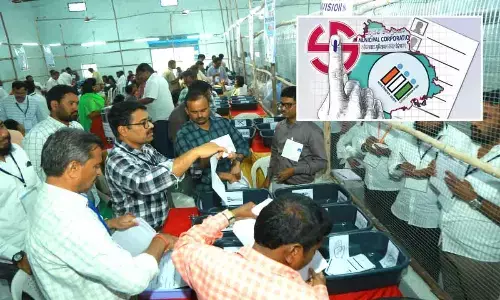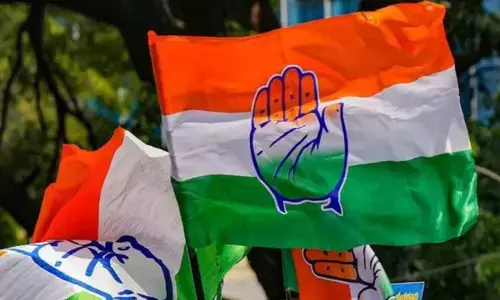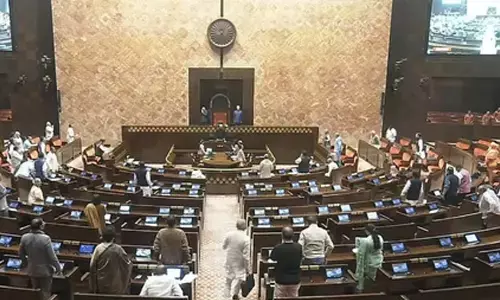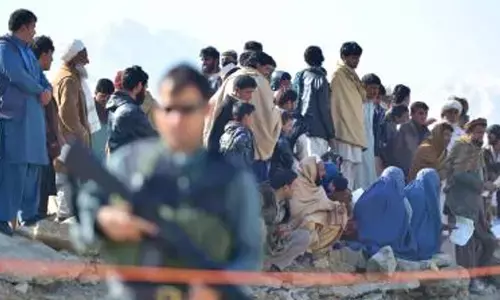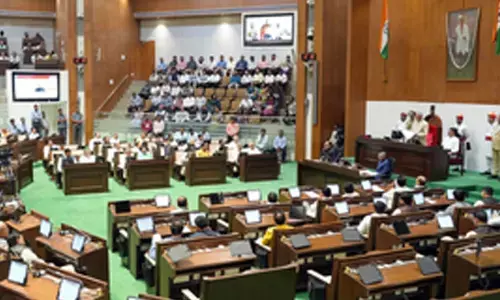Understanding the four decades of Afghan crisis
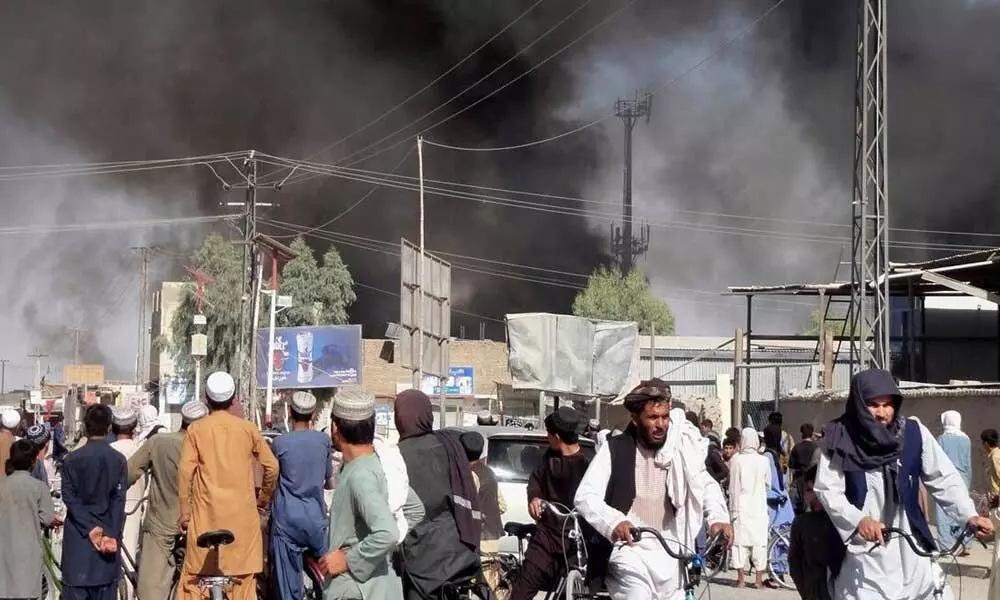
Understanding the four decades of Afghan crisis
Even though it was a poor country with several problems, Afghanistan had a relatively peaceful period, starting with its independence in 1921, up to 1973
Even though it was a poor country with several problems, Afghanistan had a relatively peaceful period, starting with its independence in 1921, up to 1973. However, it has plunged into unending conflicts since then. The current crisis traces a four-decade history marred by bloodless and bloody coups executed at different times by various groups to seize political power.
In addition, the country has witnessed civil wars, foreign military interventions, cold war conflicts, proxy wars, and the emergence of 'jihadi' terrorism. Taliban, the ultra-fundamentalist force, which was deposed from power in the mid-nineties, recently came back to power. Once again, Afghanistan might be on the verge of taking a deep plunge into a dark period.
Who is responsible for this state of affairs in Afghanistan? Is it erstwhile Soviet Russia? Or theUS and Pakistan combined? Or do the governments and the people of Afghanistan themselves take the blame?
The constitutional monarchy continued for a long time in Afghanistan based on the Hanafi School of Law, which is considered to be liberal among the four schools of thought of Sunni Islam. The monarchy in Afghanistan, particularly during King Zahir Shah's reign from 1933 to 1973 and thereafter under the Republican government of Daoud Khan till 1978, embarked on a liberal democratic reform process in terms of establishing a representative government through elections to the National Assembly. The governments of this period enjoyed popular support from the people.
In 1978, the Marxist-Leninist oriented Peoples Democratic Party of Afghanistan (PDPA) seized power through the bloodiest coup. The communist regime began to indulge in tremendous violence in eliminating opponents and demeaning the traditions of Islam. A resulting legitimacy crisis for the regime ensued. The outbreak of civil war within one year and the division of the PDPA into two groups – Khalak and Parcham – led to copious violence among the different factions. Against this backdrop, in 1979, the Soviet Russian army entered Afghanistan to save the 'communist revolution.' The Soviets crushed the fight among the warring groups and installed a new leader from Parcham as the President. The Soviet army supported the Communist regime, provided security and tried to suppress the civil war.
What could have happened had the Soviet forces not entered Afghanistan? Perhaps, the civil war would have continued for a year or two, and a solution would have arrived domestically. Reasonably, we can assume that the conflict then would not have an extraordinarily long four decades. However, the entry of the Soviets altered the scenario by dragging the Afghan civil war into the cold war between the Soviets and the US and internationalised the Afghan crisis. The then Soviet Chief of General Staff, General Nikolai Ogarkov, foresaw the widening of the crisis and had advised President Leonid Brezhnev, in vain, not to send the troops to Afghanistan.
General Ogarkov's views have become a reality. The US decided that unleashing the demon of religious fundamentalism to counter the 'communist demon' was a good option. It sought support from Islamic countries. Pakistan readily agreed to the US proposal and roped in Saudi Arabia and other Islamic countries. The US, Pakistan, and Saudi Arabia unleashed international 'jihadi' terrorism in Afghanistan by supporting the Mujaheedins' fight against the Soviet armies. Here, we need to pose a second question: What could have happened if the US and Pakistan did not get involved in Afghanistan's civil war by aiding the Mujaheedins? Given the situation, Afghanistan could have turned into Vietnam for the Soviets, and eventually, its armies could have left Afghanistan in disgrace. The Afghans could have found the solution to their problems domestically. The Afghan crisis would not have been dragged into the cold war conflict. As a hopeful conjecture, the Afghan turmoil would not have persisted this far into the 21st century.
After Mikhail Gorbachev assumed power, he withdrew Russian troops from Cuba, Ethiopia, Vietnam, Yemen, and Afghanistan. However, the Afghan crisis was tricky for him. Therefore, he sought the help of Pakistani President General Zia-ul-Haq to facilitate Russian withdrawal from Afghanistan. But General Zia thought that helping the Soviets could spell the end of loads of money coming in from the US and Saudi Arabia to his country, and he promptly rejected the proposal. Eventually, the UN-brokered Geneva Accords helped save the face and Russian troops exited Afghanistan in 1989. Despite this, the Afghan crisis did not get resolved. Instead, it entered a new phase.
Under the provisions of the Geneva Accords, a neutral government could have been formed, elections conducted under the supervision of the UN, and, finally, power could have been transferred to the elected leaders. The parties to the accord, the US, USSR, Pakistan and Iran, were not bothered about completing the process after the Soviet withdrawal and, meanwhile, Mujaheedins seized power in Kabul, and declared Afghanistan to be the Islamic Republic. But the Mujaheedins failed to consolidate their power owing to bitter internal power conflicts among the three major groups of Mujaheedins — Gulbuddin Hikmatyar, Rashid Dostum and Ahamad Shah Masood. In this situation, the CIA, ISIS, and the Jamat-e-ulma-i-Islami combinedly created Taliban which seized power in 1996 and remained in force until the US army deposed them in 2001.
In the wake of the 9/11 incidents of 2001, the US asked the Taliban to hand over Al Qaeda's leader Osama Bin Laden. The refusal resulted in the US declaring 'Operation Enduring Freedom.' The US troops entered Kabul, and the Taliban disappeared from Kabul quietly. The US installed Hamid Karzai for two terms and later Ashraf Ghani as the Presidents.
The US continued to remain in Afghanistan even after its forces captured Osama Bin Laden and protected the government in power by providing military aid and equipment. Over 20 years of stay, neither the US forces nor the so-called elected governments succeeded in dealing with the Taliban. The US remained in Afghanistan for 20 years to displace the Taliban in the first instance, only to allow them to come back again.
Who is responsible for the crisis in Afghanistan for more than four decades? In the fundamental sense, it was Soviet Russia, which was responsible for unilaterally intervening in the domestic political crisis of Afghanistan, causing Afghanistan to be dragged into the cold war conflict. Secondly, the US and Pakistan were responsible for aiding the 'jihadi' Mujahideen forces and later unleashing the grave fundamentalist force of the Taliban. No external military approaches can undertake a socio-political and economic reconstruction of another country.
Historically, this is truer in the case of Afghanistan. The military interventions of the USSR, the US, and Pakistan have brought the situation in Afghanistan to its worst state. No society tolerates violence by its own people for an extended period. They would eventually resist and find a solution. Hence, maybe it is time to leave the Afghan people to deal with their destiny. Or else, the international community should find a solution within the framework of the UN. But given the stand of the Taliban and influential regional actors like Russia, China, Pakistan and others declaring cooperation to the Taliban, the option of collective international solution through the UN is not feasible!
(Writer is Professor of Political Science (Retd), Osmania University)


